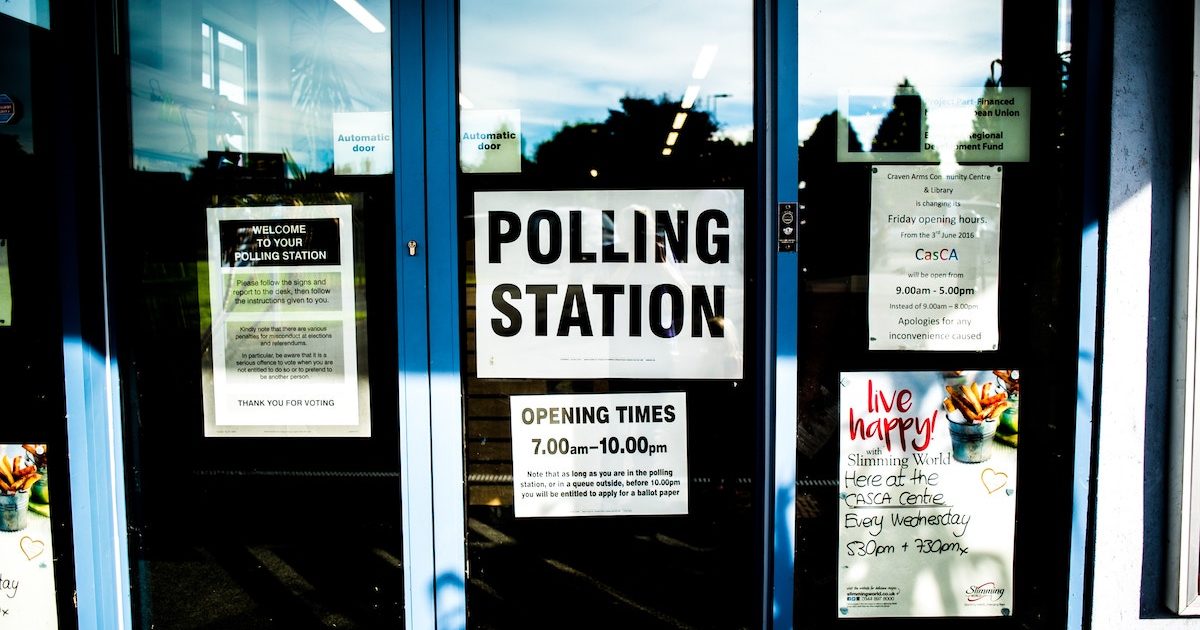Adam B. Levine is CoinDesk’s podcast editor. The views expressed are his own.
We’d be the first to tell you: No, a blockchain wouldn’t have prevented the voting debacle in Iowa.
The question is inevitable, if at this point cringe-inducing. Inevitable because the problems that delayed the results of Monday’s Democratic presidential caucus are, conceptually, some of the same ones that blockchains (and distributed ledger technology broadly) seek to solve: a lack of transparency, centralization and inefficiency. Cringe-inducing because blockchain’s record with political elections has been iffy at best.
As of early Tuesday afternoon, the voting results, normally revealed after the caucus that night, were still unknown. The state party says the delay is necessary as it performs “quality control” and verifies digitally reported results against the underlying paper trail.
This year held some notable changes for the notoriously manual and highly decentralized caucusing process, with the introduction of an app for individual local gatherings to report their results back to the Iowa Democratic Party. Traditionally, this was done with a phone call; while that process has its flaws, this year’s results make them seem almost enviable.
From all appearances, it is this new results-reporting app that is at the core of today’s chaos.
The Wall Street Journal reported:
The app was intended to help the precinct chairs record the results from each round of voting and take care of the delegate math. Then the precinct chair was supposed to use the app to send the results to the Iowa Democratic Party.
But critics expressed concern about the reliability of the app given security concerns around the 2020 elections. Cybersecurity experts also roundly criticized the Iowa Democratic Party’s decision to not identify the app maker publicly or allow it to be subject to open security and reliability testing.
The cybersecurity wing of the Department of Homeland Security recently offered to do some security testing on the app but the Iowa Democratic Party declined the outreach, according to people familiar with the matter.
The state party has defended its plan, with officials saying in January that they were confident in their security systems and that if there were errors, the party would be able to correct them because there would also be paper records of the votes.
The presidential candidates, with their jammed schedules, looked into that void and basically all declared victory in one way or another. The lack of information created an opportunity for mass chaos that could imperil Iowa’s early, hallowed place in the political landscape.
It’s not that results weren’t known, they just weren’t known anywhere besides the local precinct level.
Blockchains add complexity
One could be forgiven, then, for asking whether and how blockchain might have helped here, since the technology is often touted as a way to add transparency and to automate paper trails.
In theory, had the reporting app used a blockchain to record the data, all reported results would have been transparent and equally available for everyone to see, from the campaigns to the media to the politicos who soak up every piece of information they can.
Of course, if any results are improper or even just incorrect, those numbers would at least initially appear valid because they’re “on the blockchain,” and any changes to them later would likely draw cries of foul play from candidates losing delegates because of corrections.
Really, though, the question is less about blockchains and more about the app being used. While there are many problems with the quirky Iowa Caucus approach to political decision making, it’s certainly a decentralized process with very few central points of failure… until you introduce a mandatory reporting app!
At that point, all that decentralization is still there for the decision-making process at the local level, but when it comes to reporting results for tabulation it’s just one app, with basically just one codebase that shares a common set of bugs.
If a precinct captain has a heart attack, there’s a second and a third and basically as many as you need who can step up and fill that role to get the job done. But when the app fails? None of that matters, the app broke so the election broke.
Blockchains won’t change that. In fact, they could and very likely would make it worse as blockchains add meaningful complexity, which means more ways things could go wrong under imperfect, real-life conditions.
The app’s failure in this case was compounded by what appears to be a late rollout of the new tech-based approach, insufficient training for the staff who’d have to use it during this critical event and limited or no practice just to see if it could work in real life.
While many in our industry would like to claim we have a solution, imagine if a blockchain-enabled voting app had been deployed with as little testing and training. All of these problems occurred in a traditional app environment and without the need to make a thousand retired precinct captains write down a 24-word seed phrase.
Even if your technology is foolproof (and again, that’s far from obvious with blockchain voting apps), when it comes in contact with the fabled early majority and beyond the problems are not technical in nature. They have much more to do with the very human processes we each use in our heads and which we’ve trained all our lives to find familiar and comfortable. Ask your grandma to write down 24 otherwise meaningless words and never lose them and you’ll likely just get her upset.
Perhaps the one valuable contribution “blockchain” can make to this situation is by teaching people to view the world through a different lens, to question concentrations of power and asymmetries of information, to carefully weigh the pros and cons of established ways of doing things.
Blockchain, in other words, asks the right questions. But in this case, it’s not the answer.
Disclosure Read More
The leader in blockchain news, CoinDesk is a media outlet that strives for the highest journalistic standards and abides by a strict set of editorial policies. CoinDesk is an independent operating subsidiary of Digital Currency Group, which invests in cryptocurrencies and blockchain startups.




